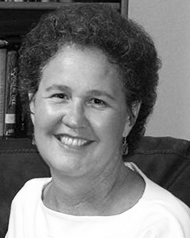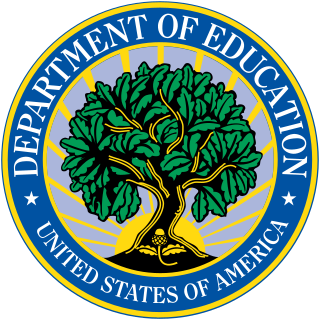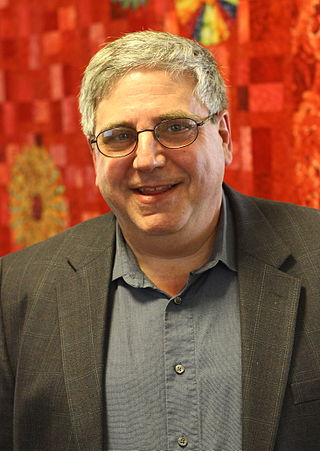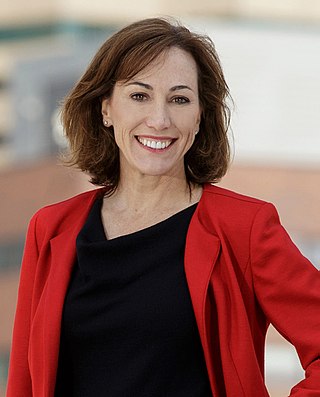Related Research Articles

Open educational resources (OER) are teaching, learning, and research materials intentionally created and licensed to be free for the end user to own, share, and in most cases, modify. The term "OER" describes publicly accessible materials and resources for any user to use, re-mix, improve, and redistribute under some licenses. These are designed to reduce accessibility barriers by implementing best practices in teaching and to be adapted for local unique contexts.

Linda Darling-Hammond is an American academic who is the Charles E. Ducommun Professor of Education Emeritus at the Stanford Graduate School of Education. She was also the President and CEO of the Learning Policy Institute. She is author or editor of more than 25 books and more than 500 articles on education policy and practice. Her work focuses on school restructuring, teacher education, and educational equity. She was education advisor to Barack Obama's 2008 presidential campaign and was reportedly among candidates for United States Secretary of Education in the Obama administration.
The American Council on Education (ACE) is a nonprofit 501(c)(3) U.S. higher education association established in 1918. ACE's members are the leaders of approximately 1,700 accredited, degree-granting colleges and universities and higher education-related associations, organizations, and corporations. The organization, located in Washington, D.C., conducts public policy advocacy, research, and other initiatives related to key higher education issues and offers leadership development programs to its members and others in the higher education community.

The Under Secretary of Education role was established as the second-highest-ranking position in the United States Department of Education when the agency was established in 1979. With the addition of a Deputy Secretary position in 1991, the Under Secretary became the third highest. The Under Secretary of Education is appointed by the President of the United States, with the approval of the United States Senate, to serve at the President's pleasure.
An open textbook is a textbook licensed under an open license, and made available online to be freely used by students, teachers and members of the public. Many open textbooks are distributed in either print, e-book, or audio formats that may be downloaded or purchased at little or no cost.
In the United States, community colleges are primarily two-year public institutions of tertiary education. Community colleges offer undergraduate education in the form of an associate degree. In addition community colleges also offer remedial education, GEDs, high school diplomas, technical diplomas and academic certificates, and in rare cases, a limited number of 4-year bachelor's degrees. After graduating from a community college, some students transfer to a four-year college or university to continue their studies leading to a bachelor's degree. Community college is tuition-free for selected students in 47 states, often under the name College Promise. Most community college instructors have advanced degrees but serve as part-time low wage employees.

The White House Initiative on Educational Excellence for Hispanics is a multi-agency working group within the Department of Education charged with strengthening the nation's capacity to provide high-quality education while increasing opportunities for Hispanic American participation in federal education programs. In addition, the Initiative serves as a resource for information related to closing the educational achievement gap for Hispanic Americans. Finally, the Initiative provides staffing to support and coordinate the mission of a President's Advisory Commission on Educational Excellence for Hispanics.

Hal Wayne Plotkin is an American journalist and activist. He is currently the senior open policy fellow at Creative Commons.

Joseph A. Garcia is an American lawyer and politician. He served as the 48th Lieutenant Governor of Colorado from January 2011 to May 2016. He is currently the chancellor of the Colorado Community College System.
Promise Neighborhoods is a United States Department of Education program authorized under the Every Student Succeeds Act (ESSA). The Promise Neighborhoods program is based on the experience of programs such as the Harlem Children's Zone. The program's mission is to improve educational outcomes for students in distressed urban neighborhoods, rural neighborhoods, and Indian tribes.

The Institute for the Study of Knowledge Management in Education (ISKME), is a 501(c)(3) non-profit organization founded in 2002. Located in Half Moon Bay, California, its mission is to make learning and knowledge sharing participatory, equitable, and open.
The term community school refers to a type of publicly funded school in the United States that serves as both an educational institution and a center of community life. A community school is both a place and a set of partnerships between the school and other community resources. Its integrated focus on academics, youth development, family support, health and social services and community development leads to improved student learning, stronger families and healthier communities. Using public schools as hubs, community schools bring together many partners to offer a range of support and opportunities to children, youth, families and communities—before, during and after school, and on weekends.
For-profit higher education in the United States refers to the commercialization and privatization of American higher education institutions. For-profit colleges have been the most recognizable for-profit institutions, but commercialization has been a part of US higher education for centuries. Privatization of public institutions has also been increasing since at least the 1980s.

Janine Anne Davidson is an American public servant, known for expertise on topics such as military operations, U.S. foreign policy and national security policy as well as higher education leadership.

Rebecca A. Hare Cokley is an American disability rights activist and public speaker who is currently the first U.S. Disability Rights Program Officer for the Ford Foundation. Prior to joining Ford, Cokley was the founding director of the Disability Justice Initiative at the Center for American Progress. During the Obama administration, Cokley served as the executive director of the National Council on Disability.
Open Educational Practices in Australia refers to the development, implementation and use of Open educational resources (OER), open access, open learning design, open policies, and Massive Open Online Courses (MOOCs) to open up education in Australia.
Open educational resources in Canada are the various initiatives related to open education, open educational resources (OER), open pedagogies (OEP), open educational practices (OEP), and open scholarship that are established nationally and provincially across Canadian K-12 and higher education sectors, and where Canadian based inititatives extend to international collaborations.
Marshall S. Smith was an American educator. He held academic positions at Harvard University, the University of Wisconsin at Madison, and Stanford University, where he was Dean of the School of Education. He also held positions in the Gerald Ford, Jimmy Carter, Bill Clinton, and Barack Obama White House administrations.
Jeannette Louise Oakes is an American educational theorist and Presidential Professor Emerita in Educational Equity at UCLA's Graduate School of Education & Information Studies. She was the founder and former director of UCLA’s Institute for Democracy, Education and Access (IDEA), the former director of the University of California’s All Campus Consortium on Research for Diversity (ACCORD), as well as the founding director of Center X, which is UCLA’s reform-focused program for the preparation of teachers and school administrators.
The Community College Consortium for Open Educational Resources (CCCOER) promotes the awareness of open educational policies, practices, and resources. CCCOER is part of Open Education Global. CCCOER describes itself as a community of practice for open education, providing various resources, support, and opportunities for collaboration for learning, planning, and implementing successful open educational programs at community colleges and technical colleges. This support includes webinars, online advocacy events and conferences, a community email list, community blog, workshops and presentations throughout North America, as well as generally raising awareness of open education and supporting the needs of students and faculty at colleges adopting open educational resources and full degree pathways.
References
- ↑ "About Us – CCCOER". www.cccoer.org. Retrieved 2021-06-26.
- ↑ "About". Community College Consortium for Open Educational Resources. 2008-02-16. Retrieved 2021-06-29.
- ↑ Resmovits, Joy (13 August 2013). "Another Key Obama Administration Departure". HuffPost. Retrieved 13 April 2020.
- ↑ "Meet the Team -- Martha Kanter". College Promise. Retrieved 13 January 2021.
- ↑ Glatter, Hayley. "Why Martha Kanter Says Free College Is About More Than Money". Community College Research Center. Retrieved 13 January 2021.